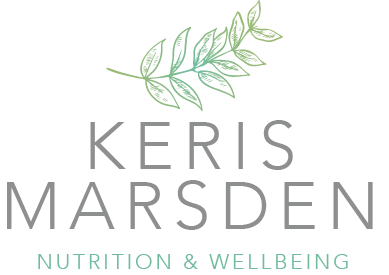Optimal nutrition for your brain
Nutrition is fundamental for optimal mental performance.
The choices you make around food influence the delivery of energy to the brain and it’s ability to make chemicals like dopamine, acetylcholine and serotonin which keep you focused, motivated and feeling great.
It also means you’re less likely to rely on sugar, caffeine or alcohol to boost you up or wind you down.
Fuel your brain cells
You can’t drive a car without fuel and your brain cells are no different.
Most brain cells run solely on glucose and but some cells can use fats for energy.
Cognitive complications like brain fog, inability to focus and memory issues can often be linked back to issues getting energy into brain cells.
Blood sugar regulation which is influenced primarily by diet, movement and sleep plays an essential role in this.
If you don’t get these ducks in a row the negative impact on the brain can contribute towards the progression of chronic, inflammatory diseases including dementia and Alzheimer’s.
What to eat for blood sugar control
The following foods will support blood sugar regulation:
Consume a serving of protein at each meal, shown to help lower post meal blood glucose levels.
Consume primarily unprocessed, wholefoods such as meat, fish, eggs, dairy, wholegrains, legumes, vegetables, fruit, nuts and seeds
Consume adequate fibre and antioxidants in the form of vegetables, fruits, legumes or wholegrains
What to limit or avoid
In addition, it’s helpful to limit foods which have a negative impact on blood sugar regulation:
Ultra processed foods that typically have five + ingredients, many unrecognisable
Foods that include many chemicals not found in your kitchen cupboards including additives preservatives, emulsifiers, sweeteners, artificial colours and flavours.
Shop brought bread, breakfast cereal, crisps, biscuits, ice cream, milk shakes, crackers, wraps, fruit juice, fizzy drinks, ready meals
Excess alcohol, more than 2-3 units daily
Power up with micronutrients
Ensuring your body is topped up with all the right vitamins and minerals is also vital for brain cells to function.
Inside each brain cell is a battery, known as mitochondria, it generates energy so brain cells can operate.
You brain batteries require B vitamins, magnesium, iron, CoQ10, copper, zinc and other nutrients found in meat, fish, eggs, legumes and vegetables.
Feed your brain with fresh air
Movement is also critical for oxygen delivery to the brain so regular physical activity is beneficial and if you can do this out in nature you’re getting top quality air with a dose of vitamin green which is great for your mindset and immune system.
Add a serving of antioxidants
When your brain is working it accumulates waste compounds, commonly known as free radicals, these can damage cells and compromising brain function.
Antioxidants mop up these free radicals so your brain can get back to business.
You can increase your antioxidant levels by consuming:
A variety of fruits and vegetables, aim for a rainbow of colours across your meals.
Plenty of herbs and spices
Dark chocolate, cacao and cocoa
Antioxidant rich beverages including coffee, Matcha green tea, red wine
Speed function with healthy fats
Dietary fats influence the communication between brain cells.
This helps you consolidate memories, recall information rapidly and make speedy decisions.
The following fats will help to optimise interactions between brain cells:
Omega-3 fats: ehe long-chain EPA & DHA fats found in fish, shellfish, and some algae. The DHA is especially beneficial for brain function.
Choline :This type of fat, known as a phospholipid, contributes to brain cell structures and helps to make chemicals like acetylcholine (which helps you focus and move), it’s found organ meats, eggs and peanuts.
Saturated Fats: the most stable type of fat and key building block of brain cell structures. It also provides a fuel source and is found in red meat, dairy and coconut
Mono and Polyunsaturated Fats: these types of fats keep cell membranes flexible so they can receive and send signals. The best sources are olive oil, avocado, nuts, seeds and evening primrose oil, these are also packed with antioxidants like vitamin E which protects brain cells from damage.
Helpful foods to beat brain fog
Here’s some extra tips on specific foods that contain compounds which might help take your cognitive function up a gear:
Inflammation suppresses brain function lowering productivity, motivation and mental clarity. Consume foods which have an immune balancing effect, such as onions, garlic, mushrooms, oats, turmeric, black pepper and oily fish.
Eating meat and fish can increase levels of creatine which can reduce mental fatigue.
A simple yet often overlooked measure is to remain hydrated across your day to avoid mental fatigue. Alongside consuming 1-2 litres of water, having soups, smoothies, stews, fruits and vegetables can help you stay hydrated
Egg yolks provide a high dose of choline which enhances memory consolidation.
The herb rosemary has been shown to significantly improve memory quality and increase mental alertness. Try drinking fresh rosemary tea or adding to roasted vegetables, soups or sprinkling over salads to get a regular dose.
If you like some nutritional therapy support for cognitive function book a free 15 minute call to discuss working together.



